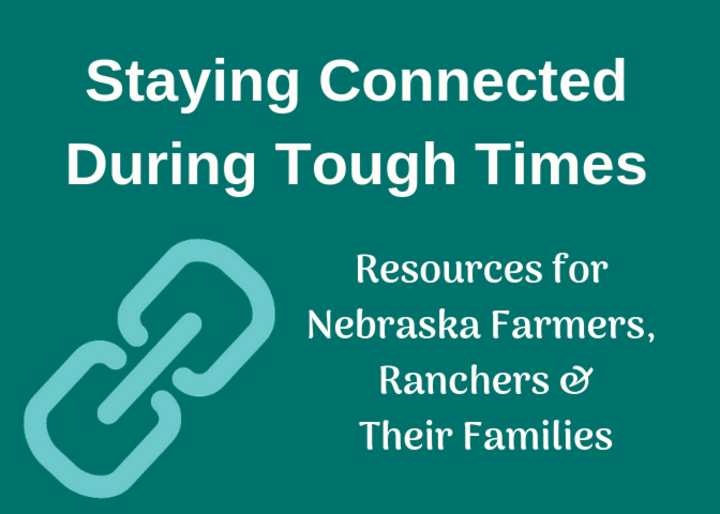Many Nebraska families are facing high stress levels this week due to the flooding and blizzard conditions affecting a large portion of the state. If you're looking for some ideas to help your family cope with the added challenges, a major Nebraska Extension study may offer some insights for you.

Resources
The Nebraska Counseling, Outreach and Mental Health Therapy (COMHT) Program, 800-464-0258, offers no-cost vouchers for confidential mental health services for persons affected by the rural crisis.
Nebraska Farm Hotline/Rural Response Hotline - 1-800-464-0258
The NebGuide, Creating a Strong Family: Effective Management of Stress and Crisis (G1886), outlines many of the tips learned through a worldwide research project on strong families. The University of Nebraska-Lincoln study involved more than 24,000 family members in 35 countries.
Following are my top 10 of the 18 key ideas drawn from the NebGuide on how you can help your family cope in the face of unexpected challenges.
- Look for something positive to focus on in the difficult situation and focus on it.
- Keep things in perspective. “These things too, shall pass.”
- Pull together rather than apart. Don’t see the problem as an individual’s problem but as a challenge for the whole family.
- Focus on what is most important and minimize fragmentation. Without focusing on the essentials, the details, details, details can get you edgy, even hysterical.
- Go with the flow to some degree. Sometimes you are relatively powerless in the face of crisis. At this point it can be useful to simply tell yourself to “let it go.”
- Know how to laugh and know how to cry, for both are essential to maintain an emotional balance in life.
- Create a life full of meaning and purpose. All people face severe crises in life. You will not be able to avoid these challenges. Rather, your aim can be to live a useful life of service to your community. This brings richness and dignity to your life, in spite of the troubles you endure.
- Realize that suffering can be a catalyst for positive growth. Crisis, by definition, is a difficult time in your life. However, it also can be a turning point, planting the seeds for a satisfying and successful future. This is hard to internalize but useful to remember.
- Identify spiritually with the grand procession of life: Through good times and bad, we, as individuals, come and go, but life from whence we all spring is eternal. There is something satisfying and soothing about that thought.
- Get help outside the nuclear family when needed. Seek help from extended family members, supportive friends, neighbors, colleagues, members of your religious community, professionals in the community, or others. In a manner of speaking, it takes a whole village to resolve a crisis.
While it might be “easier said than done” to follow these strategies, giving every effort to embrace a positive approach to deal with a crisis will help you and your family more effectively handle the situation at hand. Disasters, whether natural or human-made leave today’s families facing difficult times. Our ranching and farming families especially have been impacted by the recent floods and blizzards. Let’s remember to pull together as a state and help our fellow Nebraskans through this difficult time, as the recovery and rebuilding process will take a long time.
Additional NebGuides in the series, Creating a Strong Family, are available on the Nebraska Extension Publications website.

